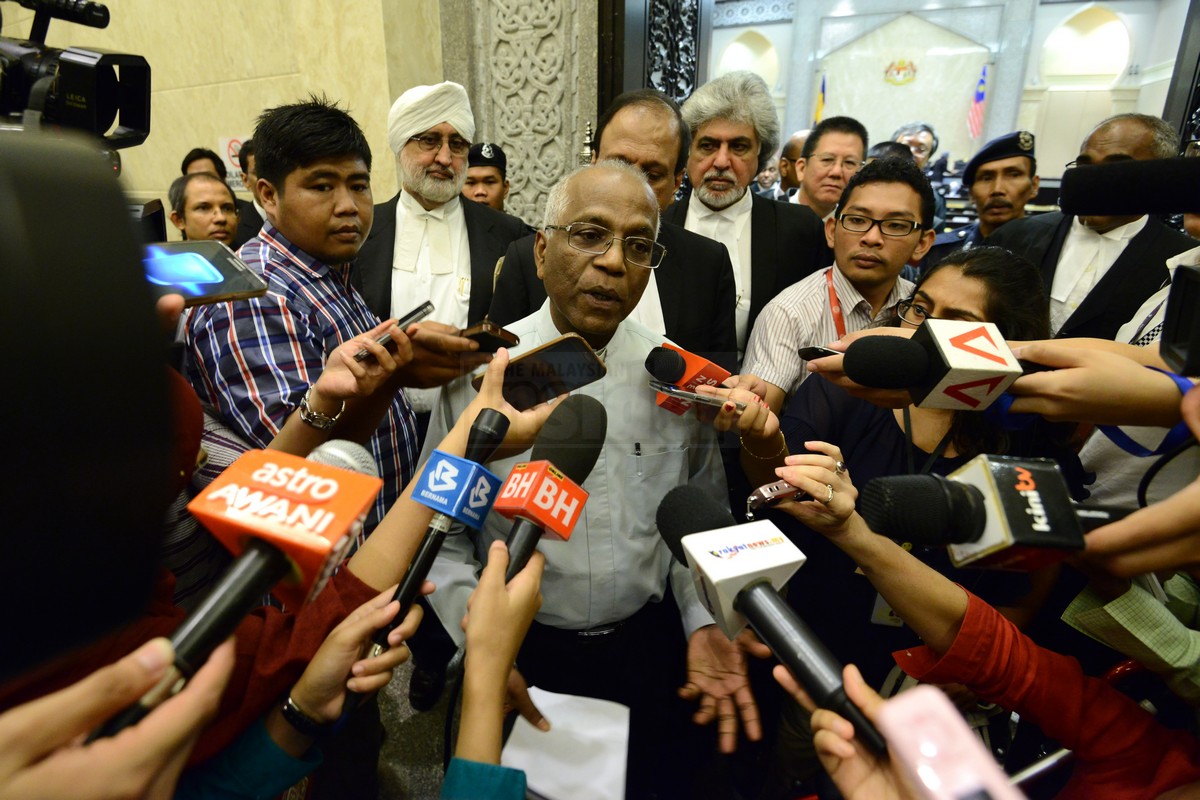Catholic Church disappointed, mulls option to ask for review of Allah decision
The Catholic Church is disappointed that the four judges who had rejected their application to the Federal Court for leave to appeal the ban on the use of the word "Allah" in their weekly publication had not talked about the rights of minority in the country.
Jun 23, 2014

KUALA LUMPUR: The Catholic Church is disappointed that the four judges who had rejected their application to the Federal Court for leave to appeal the ban on the use of the word "Allah" in their weekly publication had not talked about the rights of minority in the country.
"The four judges who did not grant us the leave to appeal spoke about things that did not touch on fundamental basic rights of minorities," Herald editor Father Laurence Andrew said today outside the court.
He said the church's lawyer will consider calling for a review of the decision.
The Federal Court today dismissed the church's leave application to appeal the ban on the use of the word "Allah" in the Herald.
Four of the seven-member bench dismissed the church's application for leave to appeal, saying that the Court of Appeal was right in its decision to ban the word in the Catholic weekly.
Chief Justice Tun Arifin Zakaria, who led the seven-man bench, said the President of Court of Appeal Md Raus Sharif, Chief Judge of Malaya Zulkefli Ahmad Makinuddin and Federal court judge Suriyadi Halim Omar agreed that leave should not be granted.
Three other judges – Chief Judge of Sabah and Sarawak Tan Sri Richard Malanjum, and Federal Court judges Datuk Zainun Ali and Tan Sri Jeffrey Tan Kok Hwa – held that leave must be granted to the Catholic Church.
One of the church's lawyers S. Selvarajah said that although a review of a Federal Court decision was rarely invoked, it was something that the church would consider.
"There is a provision for review but it is very rarely invoked, but we will consider that," he told reporters outside the court room.
Commenting on the ruling, Selvarajah said the church lawyers believe there are flaws in the four judgments which did not favour the church.
"The three dissenting judgments, in our views, are the correct position of the law. We believe there are flaws in the four judgments which we will look at closely and decide on the next course of action," he added.
Andrew also lamented that the four judges, in delivering their judgment, had spoken about what was already said in the Court of Appeal.
"But three voices spoke with clarity about the dignity of the person, about the rights of the minorities and also upheld the Federal Constitution with clarity," he said, referring to the three judges who ruled in favour of the church.
"In upholding it, they also clearly, dynamically, courageously went through the whole procedure of the appelate court and they found fault and weakness in the way it was carried out," he added.
The church had submitted 28 questions on the constitution, administrative law as well as the power of the court to allow the home minister to ban the use of a theological word.
These questions were part of the application filed by lawyers for the church seeking leave to appear before the Federal Court to challenge the Court of Appeal's ruling on the "Allah" issue.
The publisher of the Herald had been using the word in the newspaper since 1995 until the minister imposed a ban in 2009.
On October 14 last year, a three-member bench led by Datuk Seri Mohamed Apandi Ali – which allowed Putrajaya's appeal to ban the Herald from using the word Allah – had said there was a 1986 directive by the Home Ministry that prohibited non-Muslim publications from using four words: "Allah", "Kaabah", "Solat" and "Baitullah".
Apandi, in his judgment, had said that the reason for the prohibition was to protect the sanctity of Islam and prevent any confusion among Muslims.
He also ruled that if the word was allowed to be used by Christians, it could threaten national security and public order.--The Malaysian Insider







Total Comments:0